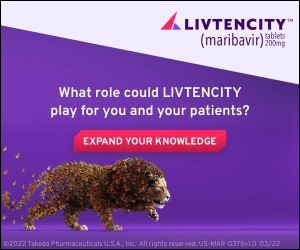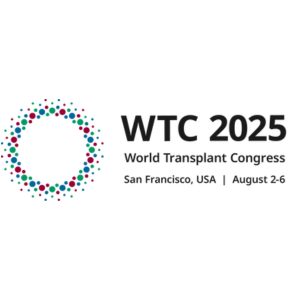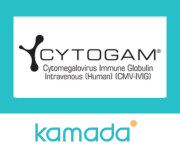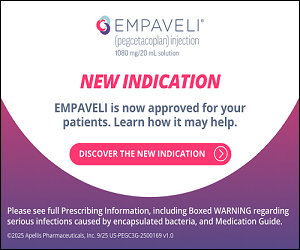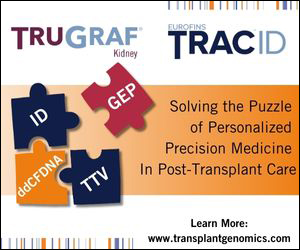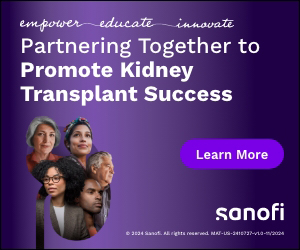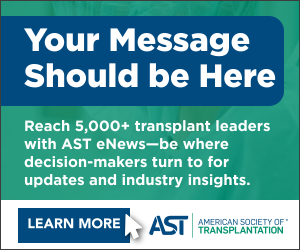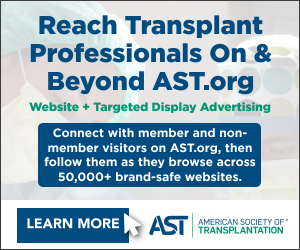 |
|||||||||||||||||||||||||||||||||||||||||||||||||||||||||||||||||||
| Past Issues | Subscribe | Advertise | myAST.org | |||||||||||||||||||||||||||||||||||||||||||||||||||||||||||||||||||
Important Dates
AST News
Medical Directors Forum
Join your colleagues in sharing innovative approaches to clinical practice, gaining insight into transplant finance, and expanding your leadership skills at the AST Medical Directors Forum.
Fellows Symposium Travel Grants: Additional Opportunity to Apply
We’re pleased to announce that the application window for Fellows 2025 travel grants has been reopened for a short period in response to community feedback.
This extension is intended to ensure equitable access, particularly for transplant fellows whose programs began on or after July 1 and may have been unable to apply during the original cycle. If you or someone in your program is eligible but missed the initial deadline, now is the time to apply. New Application Deadline: Wednesday, July 23 Meeting Location: Chicago, IL Symposium Dates: September 19–21, 2025 Support the Fellows Symposium on Transplantation!
The 2025 Fellows Symposium on Transplantation is coming up — and for the first time, it's heading to Chicago! This unique event connects fellows, residents, students, and other trainees with leaders in the field, offering invaluable opportunities for education, mentorship, and networking.
It costs about $1,500 to support just one trainee’s participation. We’re aiming to raise $15,000 to ensure more aspiring transplant professionals can attend.
Your gift will help cover travel, lodging, and meals — and directly support the next generation of transplant surgeons, physicians, pharmacists, researchers, and allied health professionals.
Registration Open for International Transplantation Science 2025
On behalf of the AST, the European Society for Organ Transplantation (ESOT), and The Transplantation Society (TTS), we are excited to announce that registration is officially open for the International Transplantation Science Meeting 2025.
ITS 2025 marks the fourth tri-society event in this global collaboration, bringing together top experts, early-career researchers, and transplant professionals worldwide. This meeting offers an exciting forum to explore cutting-edge basic and translational science in and beyond the field of transplantation.
Sharing ABIM Governance Position Openings
The American Board of Internal Medicine (ABIM) has announced the following governance position openings for those interested in professional development and/or standard setting for internal medicine and its subspecialties.
Submissions are being accepted for the following positions: "ABIM Board of Directors - Public (Non-Internist) Member" (deadline July 16), "ABIM Council - Interprofessional with experience in Internal Medicine" (deadline July 20), and two positions on the "Nephrology Specialty Board" ("Early Career Nephrologist" and "Nephrologist Practicing in a Non-University/Community Setting", deadline July 20).
Head to Partner Connect to Win a pair of Apple AirPods!
In celebration of the World Transplant Congress taking place August 2–6 in San Francisco, we are launching a members only interactive website scavenger hunt on Partner Connect!
Here’s how it works:
Search across Partner Connect and our sponsor’s e-sites for 10 hidden globe icons! Find them all and you will be entered to win brand new Apple Air Pods Pro 2! Good luck in the scavenger hunt and we can’t wait to see you in San Francisco as we come together to advance the field of transplant medicine!
Contact Congress About the Living Donor Protection Act
The Living Donor Protection Act (LDPA) has been reintroduced in Congress, and we need your support. This bipartisan legislation would prohibit insurance discrimination against living organ donors, ensure they can use FMLA leave during recovery, and require updated educational resources to promote donation.
Take action now — urge your lawmakers to support the LDPA.
Make Your Voice Heard: Protect Transplant Research Funding
Funding cuts to the National Institutes of Health (NIH) put critical transplant research at risk. NIH-funded studies have driven advancements in transplantation, improving patient outcomes and paving the way for innovations like new immunosuppressants, immune tolerance strategies, and even organ regeneration. Without this support, progress in the field could slow, affecting countless patients and families.
We need your help to ensure that transplant research remains a priority. Use our advocacy page to contact your members of Congress and urge them to protect NIH funding. Together, we can make a difference. Take action today!
AST Public Policy Form
The AST developed a survey aimed at soliciting your perspectives on legislative and regulatory issues that significantly influence both patient care and professional practice. Our goal is to establish a platform for our membership to share their invaluable ideas and perspectives and actively engage with the Public Policy Committee and AST leadership. We look forward to your input as we navigate the dynamics of our ever-evolving landscape of transplant care and practice.
Upcoming Education
Key Articles in Transplantation
Pancreas transplant outcomes in patients with human immunodeficiency virus infection
Source: American Journal of Transplantation
There is limited information on access and outcomes of patients living with human immunodeficiency virus (PLWH) who have undergone pancreas transplantation. We conducted a retrospective cohort study analyzing data from the United Network for Organ Sharing from July 1, 2001, to June 30, 2021. Recipients of pancreas transplant were stratified by HIV serostatus. Infectious disease surveillance and management in clinical xenotransplantation: Experience with the first human porcine kidney transplant
Source: American Journal of Transplantation
The success and safety of clinical xenotransplantation are determined by technical aspects of surgery, the nature and intensity of immunosuppression, xenograft function, and the ability to avoid immunologic, hematologic, infectious, and malignant complications. In clinical xenotransplantation from swine, infectious challenges relate to the potential spread of pig pathogens to immunosuppressed humans as well as manifestations of infections of the recipient from prior exposures to common human organisms.
Safety of Concomitant Use of Tacrolimus and High-Intensity Statins in Liver and Kidney Transplant Recipients
Source: Sage Journals
Due to increased risk of myalgia and rhabdomyolysis associated with the use of simvastatin with cyclosporine, use of high-intensity 3-hydroxy-3-methylglutaryl Coenzyme A reductase inhibitors (statins) is often avoided in transplant recipients.
Diabetes Therapy With SGLT2i After Heart Transplant: A Multi-Institutional Analysis
Source: JACC Journals
Heart transplantation markedly improves health-related quality of life and survival in patients with advanced heart failure. However, heart transplant patients remain at an elevated risk for chronic kidney disease and cardiovascular morbidity and mortality.
|
|||||||||||||||||||||||||||||||||||||||||||||||||||||||||||||||||||

